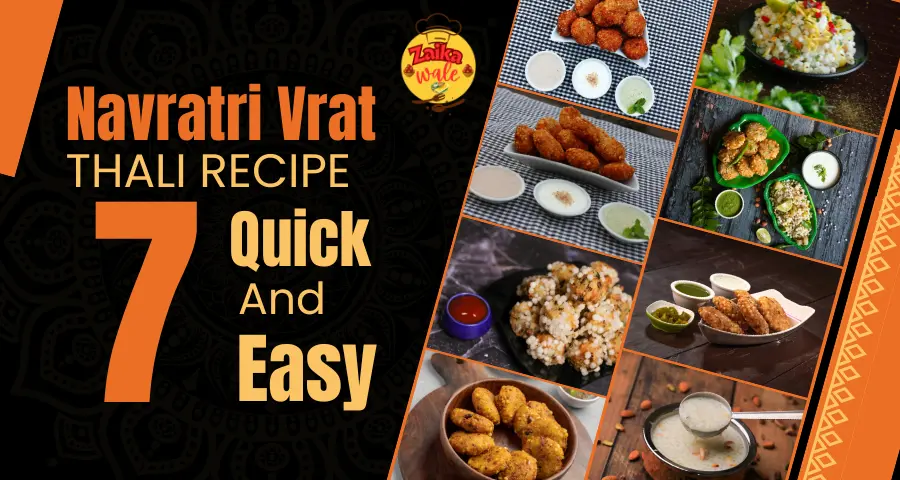Navratri is a celebration of faith, self-control, and the divine might of Mother Goddess, not just a festival. Every house reverberates with the sweet incense of devotees, is filled with the aroma of incense and agarbatti, and is sanctified by the prayers offered at the feet of Maa Durga during these nine holy days. An Essential component of these customs is the Navratri Vrat Thali , which heightens the festival’s holiness and immersion.
Fasting need not be dull, as anyone who has ever consumed a Navratri vrat thali knows. Each dish combines purity and flavor, even though it might seem a bit limited. Sabudana Tikkis, creamy Makhana Kheer, soothing Samak Rice Khichdi, and Masala Buckwheat Puris are all made with pure and satvik and packed with health , taste and devotion. A comprehensive, well-balanced and delicious fast thali is the ideal partner to sustain your energy levels during the fasting day.
What is a Navratri Vrat Thali?
A Navratri vrat thali is a platter that includes a combination of fasting-friendly dishes, served together as a complete meal. Unlike everyday thalis, this one follows rules of Navratri fasting—no grains like wheat or rice, no onion or garlic, and no lentils. Instead, it uses special flours, millets, and ingredients such as:
- Kuttu ka atta (buckwheat flour)
- Singhara atta (water chestnut flour)
- Rajgira atta (amaranth flour)
- Samak rice (barnyard millet)
- Sabudana (sago pearls)
- Potatoes, pumpkin, sweet potato, arbi
- Makhana (foxnuts)
- Rock salt (sendha namak) instead of regular salt
This thali is not just a plate of food—it’s a plate of devotion, prepared with purity and simplicity, yet rich enough to be enjoyed as a festive meal.
Recipes for Navratri Vrat Thali
Here’s what a traditional Navratri fasting thali usually includes:
Sabudana Khichdi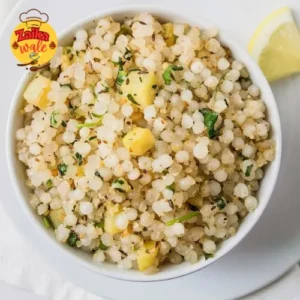
Made with potatoes, peanuts, green chilies, and soaked sago pearls, this dish is light and fluffy. It is easy to digest and filling.
Tip: Always soak sabudana for a few hours and cook on low flame to avoid stickiness.
Samak Rice (Barnyard Millet) Khichdi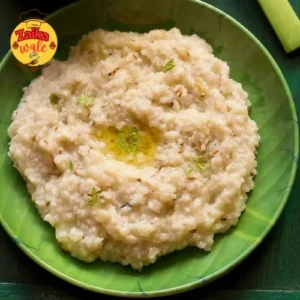
Samak chawal is a great alternative to regular rice because it cooks quickly and tastes great when combined with potatoes, cumin, and green chili.
Health Bonus: Gluten-free and light on the stomach.
Kuttu Ki Puri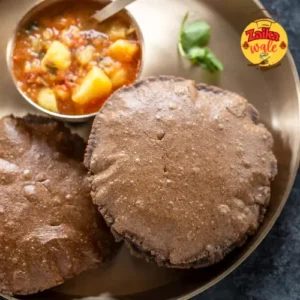
Puris made with boiled potatoes and buckwheat flour that are deep-fried. Earthy, crispy, and goes well with curries.
Pairing Idea: Best enjoyed with aloo sabzi or paneer in vrat-style tomato gravy.
Aloo Tamatar Ki Sabzi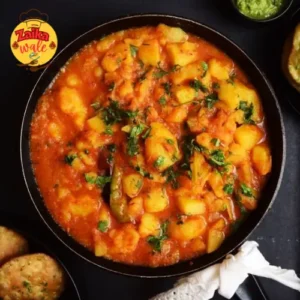
This traditional vrat thalis dish consists of potatoes cooked in a thin tomato gravy with just rock salt and cumin.
Fun Fact: This is one of the simplest yet most loved dishes during Navratri.
Makhana Curry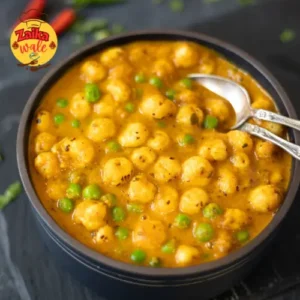
Roasted foxnuts cooked in a light, creamy gravy made with curd or cashew paste. Rich, filling, and absolutely festive.
Paneer in Vrat Gravy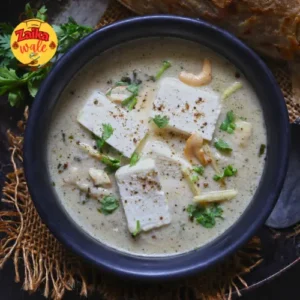
Paneer cubes cooked without garlic or onion in a tomato-cashew gravy. Indulgent, creamy, and soft.
Variation: Can also be made as Paneer Tikka in vrat style by marinating paneer in curd and with vrat wale spices, then roasting.
Sweet Dish – Makhana Kheer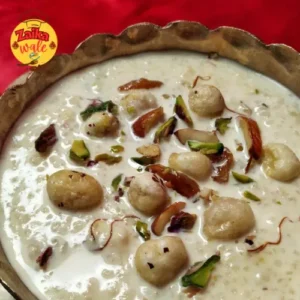
No thali is complete without dessert. Makhana Kheer is made with roasted foxnuts simmered in milk, flavored with cardamom, and garnished with dry fruits.
Alternative Desserts: Lauki kheer, sabudana kheer, rajgira halwa, or coconut ladoos.
Putting It All Together – The Navratri Vrat Thali
A perfect Navratri vrat thali could look like this:
- Kuttu ki puri or rajgira paratha
- Aloo tamatar ki sabzi
- Makhana curry or paneer vrat style
- Samak rice khichdi or sabudana khichdi
- Raita made with cucumber or bottle gourd
- Papad made with vrat ingredients (optional)
- Sweet dish – Makhana kheer or rajgira halwa
This thali has everything—grains, vegetables, protein, dairy and dessert making it balanced and nutritious.
Tips for Making a Perfect Navratri Vrat Thali
- Use only sendha namak instead of regular salt.
- Avoid onion, garlic, and regular grains.
- Keep dishes light yet flavorful—curd, peanuts, and ghee add richness.
- Add dry fruits for energy during fasting.
- Plan variety—include something crispy, something comforting, and something sweet.
Why a Navratri Vrat Thali is Special
It’s not just food because it’s prasad, or divine offering. Each dish is made with devotion and purity, following the rules of fasting without sacrificing taste. Families gather for nine days to eat together, strengthen their ties, and celebrate the blessings of Maa Durga.
Celebrities show their appreciation for Navratri vrat meals by regularly sharing their favorite fasting recipes on social media. These foods, which range from mild makhana snacks to specially made sabudana khichdi, are enjoyed by people of all religions.
Conclusion
Fasting doesn’t have to mean boring meals, as suggested by Navratri vrat food. Balance, flavor, and celebration are all provided on one plate by a well-made Navratri vrat thali recipe. This thali, which includes dishes like sabudana khichdi, kuttu puris, aloo tamatar sabzi, paneer vrat curry, samak rice and makhana kheer is the ideal blend of vigor and devotion.
Make your own homemade vrat thali this Navratri to celebrate tradition and taste Together. It will make your fasting days genuinely divine, nourish your body, and uplift your spirit.

